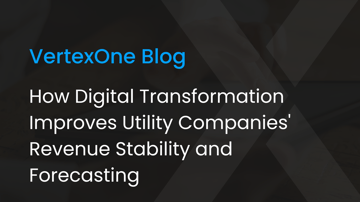Another version of this article appears in TMG's What's Next Magazine
As utilities grapple with disruptive technologies, slow commodity load growth, rising capital expenditure (CAPEX) demands from aging infrastructure, there is significant interest in leveraging Artificial Intelligence (AI) to solve complex business and operational challenges. AI is the ability of technology to simulate human intelligence for a specific task. Machine learning, a branch of AI, refers to the practice of using algorithms to parse large volumes of data, learn from it, detect patterns, and make decisions or predictions based on these patterns. These capabilities are coming to the fore because of three primary drivers: massive increase in computational power, explosion of big data (i.e. large amounts of time series data), and availability of sophisticated algorithms.
Machine learning (ML) is aggressively being used by other industries and consumers are experiencing the benefits of ML in their everyday lives. Google maps provides real-time alternate route suggestions. Personalized recommendation engines from Netflix and Amazon; real-time surge pricing by Uber; credit card fraud detection; image/speech recognition by assistants such as Google Home, Amazon Alexa, etc. are all examples of ML applications consumers use. In the future, ML can be expected to help with human genome linkage to diseases, cyber attack countermeasure automation, self-driving cars, medical diagnosis and treatment, automatic language translation, and even smart robots, among other things.
Utilities can utilize ML to enhance distribution network performance, safety and reliability, customer engagement, revenue management, demand/supply management, and operational efficiency. Vertex has leveraged ML to address customer engagement and operations optimization challenges for our utility clients for more than five years. Our sample AI deployments include: predicting likelihood to pay for customers in arrears, predicting likelihood to enroll into a program, customer segmentation driven targeted marketing, detecting abnormal water consumption from AMI data to identify leaks, and disaggregating electric load to detect abnormal HVAC consumption.
For one of our sewer-only utility customers, which struggled with bad debt and the high costs of collection, we were able to use ML on historical customer behaviors and transactions to predict each customer’s propensity to pay and then devise improved business practices linked to the risk (propensity to pay). As a result, the utility was able to reduce the number of accounts entering arrears (22%), while also collecting significantly more debt payments with a simultaneous reduction in cost of collections.
Utilities can successfully deploy ML by prioritizing use cases, selecting one use case for a proof of concept, leveraging historical utility data with other external data and procuring help from external vendors if the requisite skill sets are not available in-house. Once ML algorithms have been successfully validated with utility data, they should be linked to business actions that drive the business case and tested with a proof of concept and pilot implementation before expanding into production. Too often we find that utilities get bogged down by large initiatives focused on setting up comprehensive analytics platforms, technology infrastructure, and establishing teams with the right skillsets. Such approaches delay successful deployment of use cases and the benefits of the business case, while also creating a bottleneck for project candidates. Deploying focused, ad hoc solutions allows utilities to tackle multiple business challenges using AI and build upon every successful implementation using lessons learnt from prior projects. It also encourages business functions to take advantage of AI and the available big data within operational systems to significantly improve business process execution.
Want to learn more about how analytics and machine learning can help your utility? Check out our VXSmart Analytics and Engagement Platform.
Chirag Shah is the practice lead for Analytics & Consulting Services at Vertex, a premier provider of cloud and on-premise customer engagement solutions for the utility industry. Chirag has over 22 years of experience using technology to solve business challenges across multiple industries, of which the last 9 years have been focused in the Utility industry. Chirag holds graduate degrees in Business and Engineering, with a focus on analytical consulting and computer engineering.



